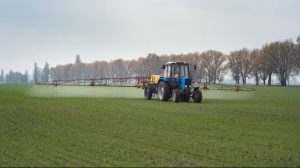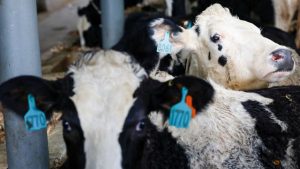
Indian state imposes penalties in 2,191 cases of food contamination, highlighting severe lapses in dairy supply chain oversight.
The Punjab government has disclosed significant action against food adulteration, revealing that penalties totaling ₹3.04 crore (₹3,04,75,720) were imposed across 2,191 decided cases between January 2019 and December 2024. This disclosure was made in an affidavit to the Punjab and Haryana High Court, filed in response to a Public Interest Litigation (PIL) highlighting the widespread sale of contaminated food products. The vast majority of these cases were found to involve milk and various dairy products, underscoring a major challenge to food safety and public health in the region.
The legal action stems from a PIL filed in 2024, which seeks the strict enforcement of the **Food Safety and Standards Act (2006) to protect vulnerable consumers, including children and the elderly, from health risks. The High Court had previously ordered both Punjab and Haryana to provide data on penalties imposed over the preceding five years. Officials confirmed that contamination was detected in both raw milk and processed foods, with the potential to cause acute issues like food poisoning and long-term complications. The scale of the problem is evident in the types of adulterated items listed in the affidavit, which span the entire dairy supply chain. Contaminated products included various forms of milk (cow and buffalo), butter, curd, desi ghee, paneer, and khoya, alongside milk-based sweets such as burfi and rasgullas. The data presented also revealed regional hotspots, with Amritsar (206 cases), Gurdaspur (208 cases), and Sangrur (160 cases) reporting the highest volumes of decided cases, contrasting with lower numbers in districts like Sri Muktsar Sahib (30) and Kapurthala (53).
While penalties were levied in approximately 95% of the 2,191 cases, a significant systemic lapse was highlighted by the petitioner, advocate Sunaina. She pointed out that prosecution was initiated in only two instances. This perceived absence of deterrent prosecutions raises serious concerns among agribusiness analysts about accountability and the effectiveness of current enforcement mechanisms. The high number of cases over a five-year period suggests a failure in prevention rather than just detection.
The petition specifically advocates for stronger judicial intervention, calling for stricter sampling protocols, more transparent enforcement, and significantly harsher punishments for repeat violators to restore confidence in the dairy sector. Further demands include the establishment of additional food-testing laboratories and the launch of public awareness campaigns to improve consumer knowledge regarding food safety risks. The PIL is scheduled for a follow-up hearing on October 14.
Read the full data journalism report on dairy food safety enforcement from The Indian Express.
You can now read the most important #news on #eDairyNews #Whatsapp channels!!!
🇮🇳 eDairy News ÍNDIA: https://whatsapp.com/channel/0029VaPidCcGpLHImBQk6x1F

















